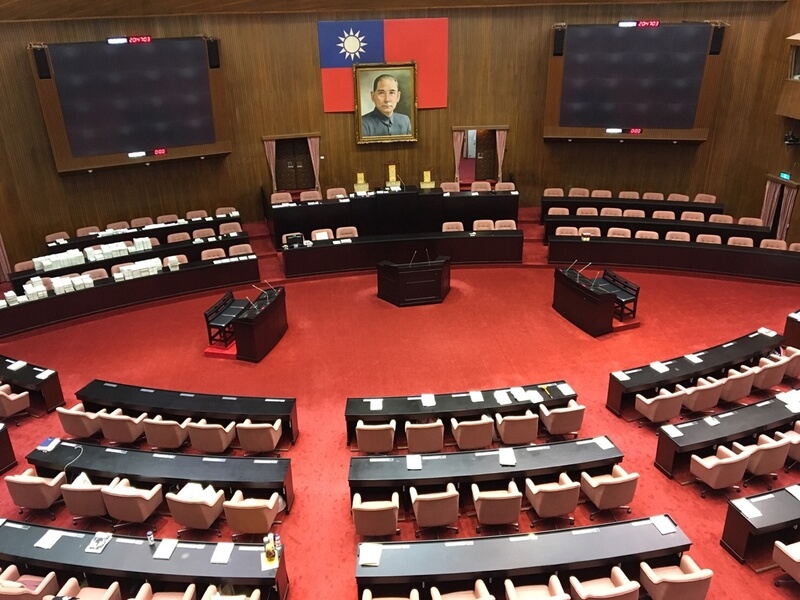In the last session of the Legislative Yuan, the compensation for the ban on logging for indigenous people was raised, and the relevant budget was doubled. However, the 114-year (2025) total budget prepared by the Executive Yuan was not included.
After voting, the Kuomintang and the People’s Party supported Ciwas Ali’s proposal, and finally voted in favor of 59 votes, winning 46 bills, and the relevant budget bills were returned to the Procedure Committee of the Legislative Yuan.
the Legislative Yuan amended the law on June 4 this year to pass the “Compensation for the Prohibition of Logging on Aboriginal Reserves” to compensate for the restricted use of forest land on Aboriginal reserves, and to meet the principles of land security and ecological conservation, as well as fairness, and increase the annual compensation from NT$30,000 to NT$60,000 per hectare, and the bill was finally passed after the third reading.
However, the budget of the 114-year Indigenous Peoples Committee, only NT$2,816.1 billion was allocated for the subsidy cost of the ban on logging, and then looking at the annual part of the special fund, only NT$2,787 million was allocated for the plan, which was equivalent to the budget prepared before the amendment.
At the meeting on 20/09, the Legislative Yuan was started to discuss the “114-year Central Government General Budget (including Subsidiary Unit Budget and Consolidated Statement – Business and Non-business Parts)” and “Central Government Forward-looking Infrastructure Design and Drawing Phase 5 Special Budget”.
The Council intends to invite the Premier, the Comptroller, the Minister of Finance, the Chairman of the National Development Commission and the heads of relevant ministries to report on the 114-year policy plan and the “114 Central Government General Budget” .
The legislator Ciwas Ali shouted “there is an objection” in the meeting hall and demanded that it be returned. Legislative Yuan’s President Han Kuo-yu announced a vote, and both the Kuomintang and the Taiwan People’s Party supported Ciwas Ali’s return of the proposal, and finally voted 59 in favor and 46 against.
At present, the general budget and the fifth phase of the forward-looking construction budget are returned to the Procedure Committee, which is equivalent to the return of the entire budget, and the Council will not be able to arrange for the head of the administrative agency to question the budget, so the opposition will put pressure on the administrative agency to re-examine the legitimacy of the relevant budget preparation.
在20日的院會上,無黨籍立委高金素梅提出提案,要求將整份預算案退回程序委員會。經過投票表決後,國民黨和民眾黨均支持高金素梅的提案,最終以59票贊成、46票反對的結果通過,所有相關預算案均被退回程序委員會。
立法院在今年6月4日修法通過了「原住民保留地禁伐補償」的相關法案,旨在解決原住民保留地林地使用受限的問題,並促進國土安全、生態保育及公平原則。該法案將每公頃的補償金額從每年3萬元提高至6萬元,並最終完成三讀。
根據114年度原住民委員會的預算,禁伐補償所需的補助費用僅編列了28億1610萬元,而特種基金的支出部分則僅編列27億8700萬元,這與修法前的預算數字相當。
在今日的院會報告事項中,韓國瑜宣讀了第35案,包括「114年度中央政府總預算案(含附屬單位預算及綜計表-營業及非營業部分)」及「中央政府前瞻基礎建設計畫第5期特別預算案」。議事處提議定期舉行會議,邀請行政院院長、主計長、財政部部長、國家發展委員會主任委員及相關部會首長出席,報告114年度施政計畫及預算編製情況,並接受質詢。
高金素梅在議場中大聲表達異議,要求退回預算案。立法院長韓國瑜隨即宣布進行表決,國民黨和民眾黨均支持高金素梅的退回提案,最終以59票贊成、46票反對的結果通過。
目前,總預算和前瞻建設第五期預算被退回程序委員會,這一舉措相當於將整份預算案退回,院會也無法安排行政院長的預算質詢,這對在野黨來說是施加壓力,促使行政院重新審視相關預算的編列正當性。



